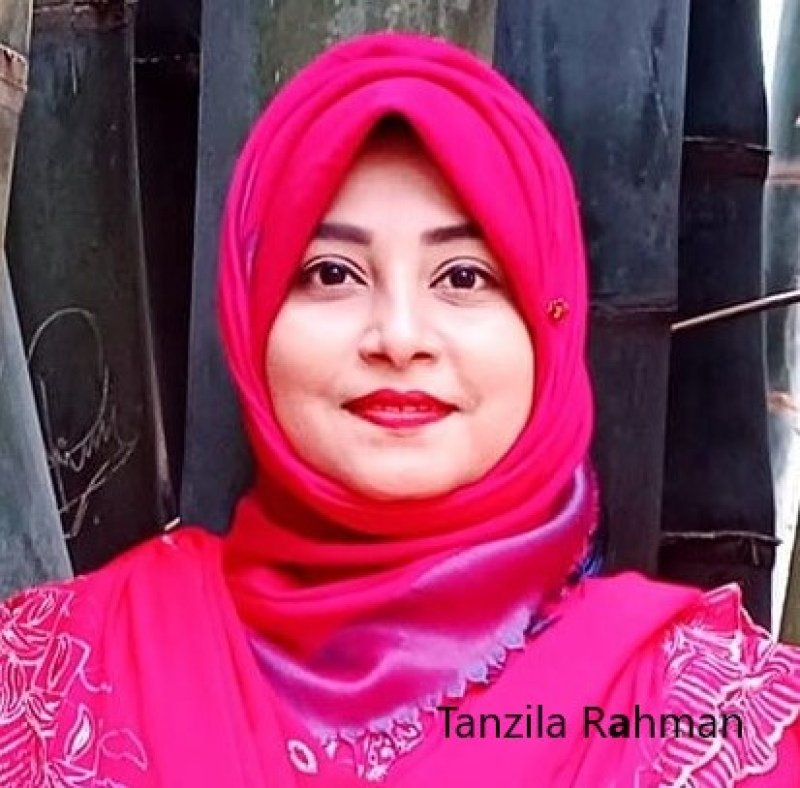- Dhaka to maintain ties with all countries with dignity |
- Historic Chawk Bazar comes alive with iftar items on first day of Ramadan |
- CAB demands action over obstruction to drive against price hike |
- Remittance inflow crosses $2 billion in just 18 days of February |
- Two killed, 10 injured in Madaripur bus collision |
Dengue increased by Climate Change

Tanzila Rahman, UAO, Ramu
Tanzila Rahman and Prof. M Zahidul Haque
Dengue is climate-sensitive; climate change is contributing to the breeding condition of dengue mosquitoes as the World Health Organization (WHO) says “dengue is rising partly because global warming benefits mosquitoes, along with other factors movement of people and goods, urbanization, and problems with sanitation”.
Prof. M Zahidul Haque
Variation of temperature together with factors like rainfall, humidity favors breeding of mosquitoes and transmission of dengue virus. The climate-sensitive vector-borne viral dengue disease is spreading fast and if the climate change factors are not brought under control, the epidemic intensity of dengue could be elevated terribly. According to an available data, about 3.9 billion people could be put at risk of dengue globally, driving geographical expansion of the disease.
Dengue is a viral infection caused by the dengue virus (DENV) transmitted to humans through bite of infected mosquitoes—Aedes Aegypti that carries the germ of dengue fever. There are four known forms of Dengue, viz. DENV-1, 2, 3 and 4. But recently a more lethal variant—DEN2 has been detected which can lead to multiple organs failure and a sharp decline in platelet count which may ultimately cause death.
Normally most dengue patients do not need special treatment but some patients develop severe dengue and require hospitalization. Bangladesh has become the worst dengue affected country of the world. It is struggling with a serious spike of dengue cases across the country. Till date (01/11/2023), some 263300 people are being infected by the dengue virus while the number of fatalities from this mosquito-borne disease stands at 1348.
The WHO recommended ‘Bendiocarb’—an insecticide which is effective against Aedes mosquitoes for indoor residual spraying. The Dhaka City Corporation regularly does fogging areas using chemical (synthetic pyrethoids) to keep mosquitoes under control.
The government is contemplating to release modified mosquitoes carrying Wolbachia bacterium capable of reducing dengue virus transmission. It may be mentioned here that in three densely populated cities in Columbia, dramatic fall in the incidence of dengue found following deployment of Wolbachia infected mosquitoes. The Wolbachia mosquitoes also pass the bacteria onto their offspring which will eventually surpass the number of mosquitoes without Wolbachia bacterium and control spread of dengue virus. The World Mosquito Program (WMP) recently announced its plan to build a factory in Brazil to producing modified (Wolbachia) mosquitoes to release in many of Brazil’s
urban areas.
Although dengue is found mainly in tropical and sub-tropical climates worldwide but now dengue has spread to other parts of the world including countries within North, South, Latin and Anglo Americas.
Meanwhile Bangladesh has for the first time successfully tested dengue vaccine named—TV-005 (Tetravalent). Researchers are now working to expand the vaccination throughout the country.
The foremost task is to raise peoples’ awareness about protecting themselves against dengue and keeping their homes and yards clean so that dengue mosquitoes do not get multiplied. For this, effective and frequent media publicity is extremely essential. The citizen journalists can make people conscious about their ‘dos and not dos’ towards getting rid of dengue mosquitoes via social media.
(Tanzila Rahman (BCS-Agri) is Upazila Agriculture Officer, Ramu, Cox’s Bazar and
prof. M Zahidul Haque retired as Professor and was also a former Dean of Faculty
of Agriculture at Sher-e-Bangla Agricultural University, Dhaka)

